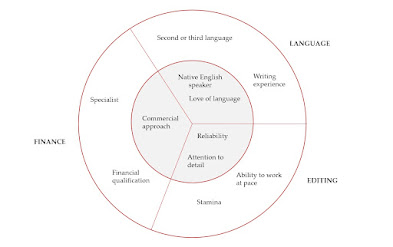Does ChatGPT Spell The End for The Supervisory Analyst?
In short, no, at least not this version. The best use for it could be as a kind of powerful spellcheck, a belt and braces check on what the SA has done.
Putting ChatGPT through its paces
We tested ChatGPT version 3.5 against FINRA’s rules for research. We wanted to know if this iteration of the software could replace the supervisory analyst. The results were mixed.
For example, we asked if it thought the following statement was balanced: “On the one hand, investment research is great. But on the other, it is brilliant.” ChatGPT thought it was balanced because the sentences did not express any negative feelings about either side.
We then asked it to comment on the Bank of England’s decision to raise rates by 8.5%. It responded that the raise was “…an aggressive move that has the potential to significantly impact the UK economy…” thus failing to pick up the fact that the Bank has never raised rates by 8.5%.
It did not consider a statement that earnings would rise by 23% to be exaggerated, but thought that a 24% increase would be exaggerated.
Sometimes it would get the answer right the first time, but if we asked again, it gave a different answer that was not quite right, or vice versa.
However, it was good at assessing whether statements were a sound basis for evaluating a security and whether a statement was true or false.
Flawed, like a Replicant
The way ChatGPT works is by trawling the web, analysing what words come next in a sentence and what fraction of the time, and assigning probabilities to each word. It then chooses the most likely answer to any prompt. It’s like a very sophisticated version of predictive text messaging, however with a twist, that it can be trained to improve its answers using human input (GPT stands for generative pre-trained transformer).
A random element is also introduced so that it doesn’t always choose the most likely option. This is intended to make the responses seem more human – this is why answers to the same prompt can vary.
However, it doesn’t understand what the words it produces mean, it just spits out what is statistically the most likely answer. It’s like the replicants in Blade Runner doing the Voight-Kampf test to see if they are human – they don’t know what emotions are or feel them, they have just been programmed to replicate what they should look like.
Not today, but maybe tomorrow
The nightmare scenario for the Luddite SA is that such tech becomes so powerful one day that you could upload a document and in seconds have it reviewed, with rule violations flagged and sensible queries for the analyst, essentially making supervisory analysts superfluous.
At the time of writing, this is not possible without custom scripting as only text input up to 3,000 characters is allowed. However, this seems like a technical limitation that could be overcome.
If it were possible, some flags would be right but for the wrong reasons, others would be plain wrong and some would be missed altogether. It also couldn’t get a sense of the argument of the document as a whole. This could have serious consequences for firms. Repeated training could weed out these issues however.
The random element is also a source of concern as it means the software could say a sentence was a violation the first time it was asked, but let it go the second time. This would make it hard for compliance departments and department heads to trust it.
It also wouldn’t be able to negotiate with the analyst or liaise with compliance or the DTP department, nor could it check charts or tables or cross-reference them versus the text.
Then there is the regulatory aspect. As of today, FINRA requires a human to approve research. Any change to that rule is likely to happen at a significant lag to developments in the technology.
Conclusion
Based on this version, it is likely that ChatGPT will save SAs time or act as a safeguard in some aspects of SAing in the future, like a far more powerful version of spellcheck does for editing today. How much time it will save is the question. However, a human would still be needed. Who knows what future versions may look like and how it will be trained, but supervisory analysts can sleep easily, for now.
Research Editors provides supervisory analyst and editing services to investment banks, brokers and fund managers across the globe. Call us on +44 20 4551 1051 or email us at info@researcheditors.co.uk to find out what we can do for you.
For more information visit: https://researcheditors.co.uk/
Original Source: https://bityl.co/KCfB




Comments
Post a Comment